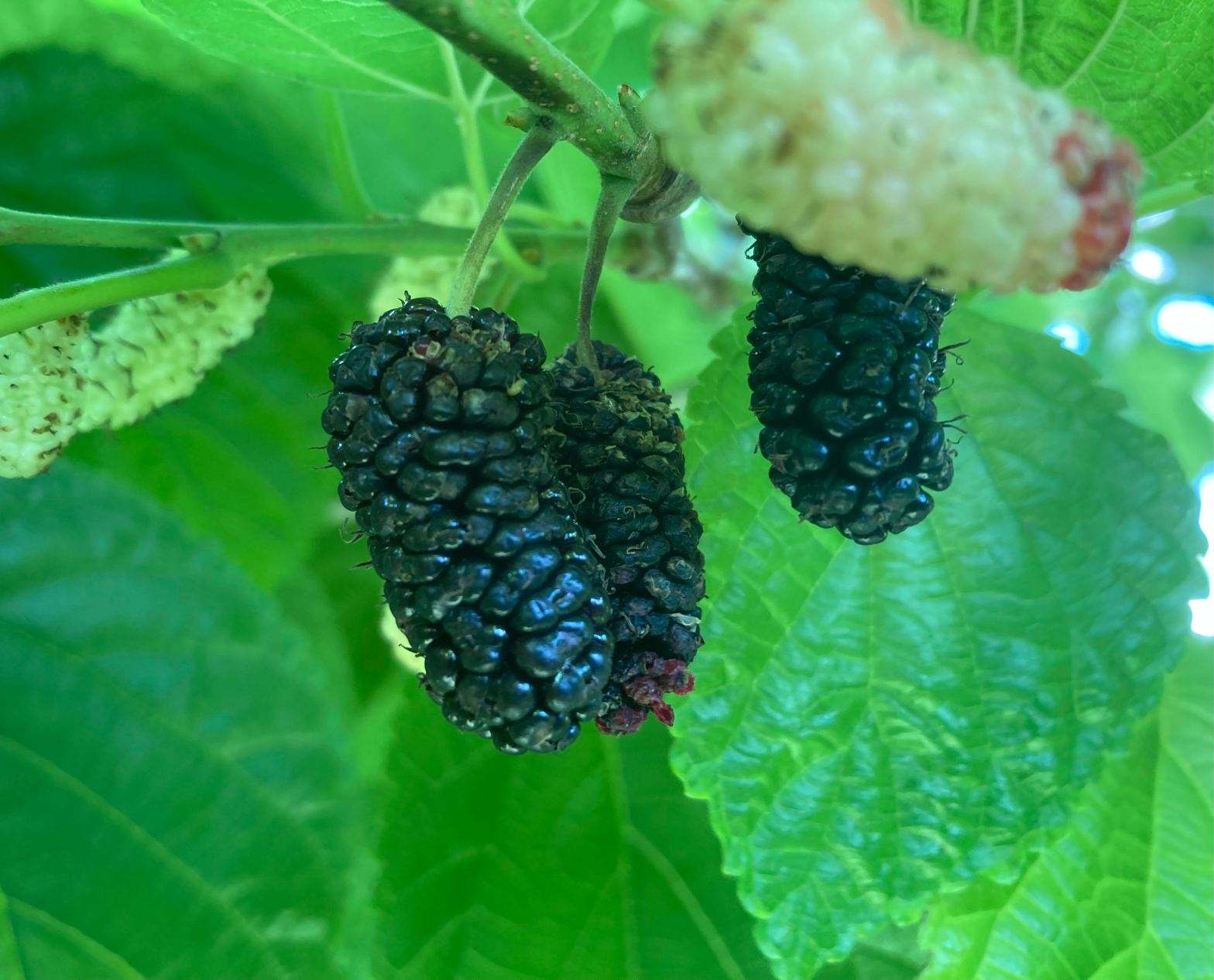When most people think of Chinese herbal medicine, ginger comes to mind first. While ginger is a premier herb of our materia medica, it is mulberry that has captured my heart, helps me have a happier menopause, and keeps my face looking normal.
My mulberry tree started as a cutting from a local botanist. I planted it in the front yard, and watched it survive weedwacking multiple times, which seemed to spur it on to aggressive growth. When it achieved about three feet of vertical growth it produced its first crimson-colored, sweet berry. And I was hooked.
Mulberry fruit, or Sang Shen, is a special herb in our materia medica. Only the crimson-colored berry (not the white) is considered medicinal. Its properties are sweet and cold. Usually sweet herbs are warm, but mulberry is an exception. It enters the Heart, Liver, and Kidney channels – all yin channels. It gently nourishes and cools Blood and Yin. So what does that mean and why does that matter?
Mulberry is the reason my transition to menopause has been mild and my hair has only a couple of grays. Every spring, when my mulberry tree fruits, I eat a handful several days a week. In Chinese Medicine, we believe that when women transition to menopause their Yin fluids start to dry up, causing dryness of skin, hair and other areas. When Yin dries up, it makes Yang seem excessive in comparison and can create hot flashes. Sang Shen also helps with symptoms such as dizziness, tinnitus, insomnia and premature greyness because of its affinity to the Liver and Kidney channels. It can also help constipation due to Blood or Yin Deficiency.
The mulberry fruit’s superpower is its gentleness in nourishing the Blood and Yin without upsetting digestion. It’s crimson-purple color is a reminder that it works best on the Blood level, and can cool Blood level Heat. That’s another reason I make sure to have a daily dose of mulberry – it helps keep my pyoderma faciale (rosacea fulminans) under control because it clears Blood level Heat.
Of course, as with any herb in Chinese Medicine, moderation is key. More isn’t always better. You don’t need more than a handful a day. And people with some forms of diarrhea and digestive deficiency could be aggravated by mulberry. So check with your acupuncturist to make sure Sang Shen is right for you. But if you are making the transition out of your fertile years, the magical mulberry might just make menopause more bearable.
Nicole Noles Collins is a NCCAOM Board Certified Diplomate of Acupuncture and licensed to practice acupuncture in the state of Florida. She owns Vitalichi Acupuncture in Port Charlotte, Florida. Nicole has two bachelor of science degrees – Alternative Medicine (holistic) and Professional Health Sciences (western medicine concepts) – as well as a master’s degree in Traditional Chinese Medicine. She has a passion for writing and natural health. Please visit her website at www.vitalichi.com, like her Facebook page at Vitalichi Acupuncture and find her on Instagram @vitalichiacupuncture. For more information, call 941-979-9793.
